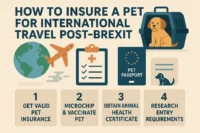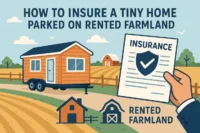Total Trucking Insurance: Comprehensive Coverage for Your Fleet
Published: 5 Aug 2025
Introduction
Operating a trucking firm carries heavy duties, chief among them the need to shield the vehicles that drive the whole venture. Trucks move goods for miles and, in doing so, confront hazards ranging from collisions and road damage to theft and spillover liability. Securing solid insurance for every rig therefore keeps both equipment and balance sheet safe.
This piece will walk you through the idea of total trucking insurance, why it matters, the main policy types it bundles and tips for picking the right all-in plan for your fleet. By the final paragraph, you should know the coverage that fits your operation and supports its long-term success.
What is Total Trucking Insurance?
Definition of Total Trucking Insurance
Total trucking insurance describes the broad set of protections designed to guard carriers and their fleets against multiple business dangers. It packages essential coverages such as liability, physical damage, cargo loss and workers compensation into one coordinated suite.
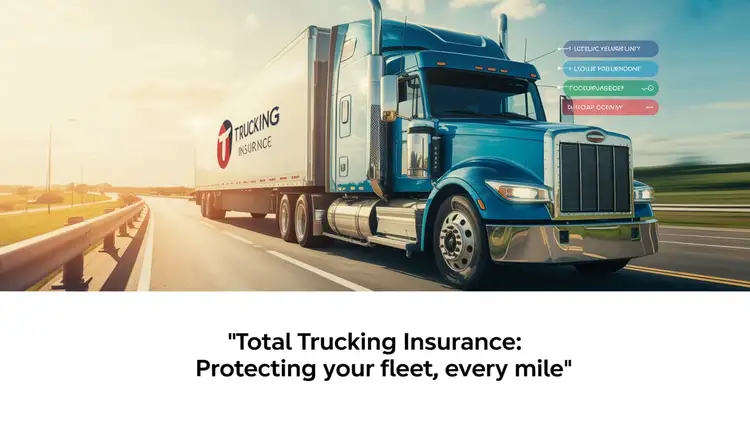
What’s Covered
With this plan, your trucks, drivers and freight are shielded from perils including crashes, theft, fire, vandalism and other unexpected events.
Why It Matters
The trucking sector exposes owners to many dangers and choosing the correct policy keeps every truck and driver shielded while they roll down the highway.
Why Fleets Must Have Broad Coverage
Broad Coverage for a Fleet
Broad or comprehensive, coverage for a fleet is an essential line of defense against money-loss surprises. One serious collision or theft can trigger bills for repairs, medical care, court claims and lost income during downtime. A strong commercial policy absorbs those expenses so your operation does not grind to a standstill.
What It Covers
Broad coverage looks after vehicles, drivers, cargo and everyday business activities, stepping in whenever an unexpected event threatens to drain cash reserves.
Why It Matters
With such coverage in place, a company can absorb large, sudden losses and keep managing routes, payroll and customers without the constant worry of surprise bills.
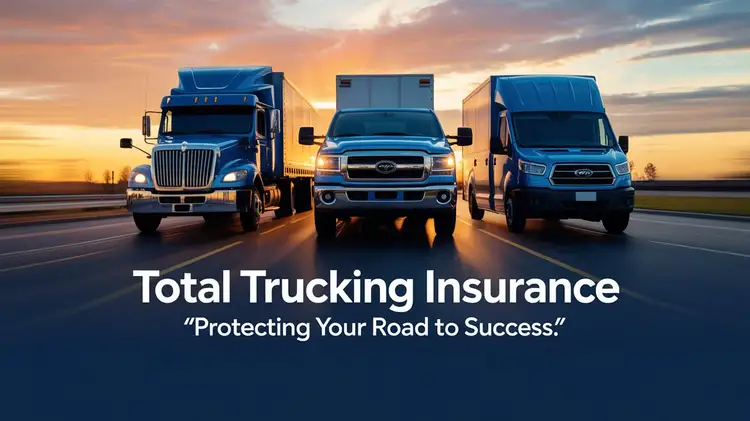
Common Components of Total Trucking Insurance
Collision and Liability
Total trucking insurance usually combines several separate lines of protection. Collision and liability handle vehicle damage and third-party claims, while cargo coverage secures the freight on board and physical-damage clauses cover theft or vandalism. Each piece safeguards a different part of the business, so grasping what they do is key to tailoring a plan that fits your operation.
Liability Insurance
Transportation liability insurance sits at the heart of any complete trucking policy. It pays for injuries sustained by others, repairs to their damaged cars and the lawyers fees or settlements that follow if the driver or company is deemed responsible in court. Without it, a single crash can drain business savings or force a bankruptcy filing.
What’s Covered
Bodily-injury claims, property-damage claims and all reasonable legal expenses tied to the wreck.
Why It’s Important
Most states mandate liability coverage and even where it isn’t required, smart trucking firms carry it because the protection it offers companies and their owners is simply too valuable to forfeit.
Physical Damage Insurance
Physical-damage coverage steps in when a truck is dented, smashed, stolen or set ablaze by vandals. Whether the loss occurs in a highway pile-up or an empty yard, this policy pays the repair shop or replacement dealer, letting fleets stay on schedule instead of waiting for parts or salvage bids.
What’s Covered
Repairs to the tractor and trailer after collisions, plus losses from fire, theft and vandalism.
Why It’s Important
Trucks and trailers cost hundreds of thousands of dollars and without physical-damage protection, a single incident can wipe out a year’s profit, cripple cash flow and delay deliveries to customers.
Cargo Insurance
Cargo insurance is a specialty policy that protects the merchandise carried on your trucks from the loading dock to its final delivery point. Should the load be damaged, lost or stolen while en route, the coverage reimburses you for the monetary setback. Because each shipment may involve a different kind of commodity or method of transport, the policy can be tailored to match their specific risks, from fragile electronics to bulk building materials.
What’s Covered
Any loss or physical damage to the cargo during transit, including theft, collision impact or water exposure.
Why It’s Important
For carriers handling high-value or time-sensitive freight, having this protection secures your bottom line and helps maintain trust with shippers.
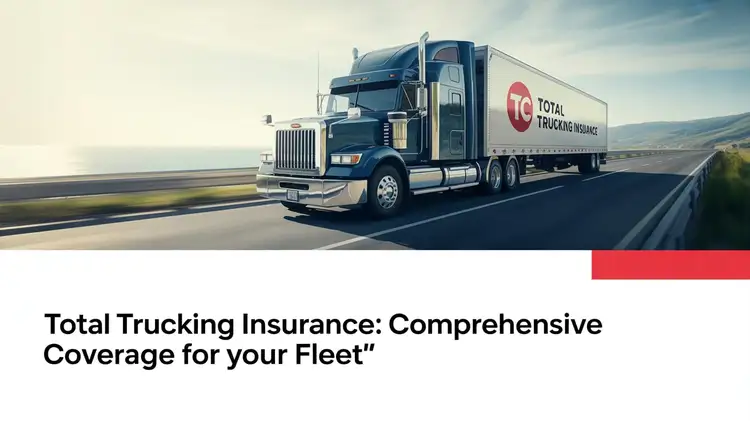
Workers Compensation Insurance
Workers compensation insurance is a legal safety net for employees injured while performing their duties inside the terminal, on the loading dock or behind the wheel. It pays for medical care, wages lost during recovery and rehabilitation services, easing the financial strain on both the worker and the employer.
What’s Covered
Costs for treatment, any partial or full wage replacement and therapy needed to return to regular duties after an injury.
Why It’s Important
Apart from meeting statutory mandates in most jurisdictions, the coverage shows your commitment to employee welfare and can shield the company from costly lawsuits.
Non-Trucking Liability Insurance
Non-trucking liability insurance kicks in when an owner-operator uses their rig for personal errands rather than for a paying freight-hauling assignment. It covers bodily injury and property damage claims that arise during those non-business miles, filling the gap that standard commercial truck policies may leave untreated.
What it Covers
Liability protection for incidents that take place while the truck is parked, being driven for personal errands or is otherwise off-duty and not hauling freight.
Why it Matters
This policy shields drivers from costly claims when they use the vehicle outside business hours, so their personal liability does not fall on the carrier.
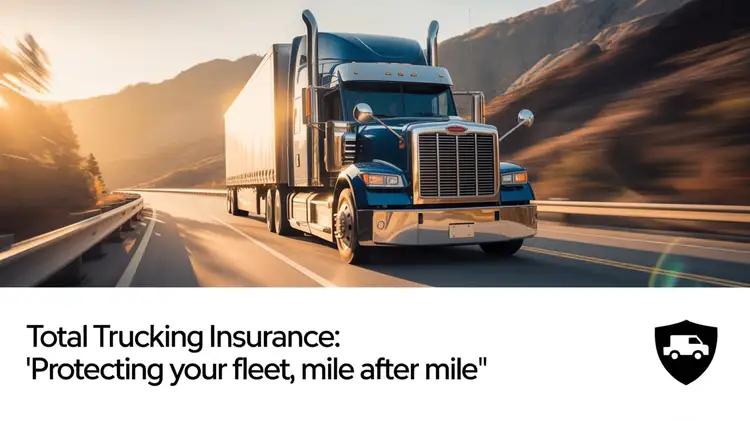
Trailer Interchange Insurance
Trailer interchange insurance pays for damage to trailers borrowed or leased from other fleets, covering repairs, parts and even full replacement if needed.
What it Covers
Physical harm to these third-party trailers that occurs while they are under your care.
Why it Matters
Because many truckers swap equipment frequently, this coverage keeps your operation running smoothly and protects you financially when outside trailers are returned.
Factors That Shape the Overall Cost of Trucking Insurance
Fleet Size
As your fleet grows, so too does the cost of covering each additional unit. Insurers perceive a larger operation as containing greater cumulative risk and therefore raise premiums to match.
What’s Covered
Basic liability, physical damage and any supplemental policy carried for each vehicle across the fleet.
Why It’s Important
The sheer number of trucks dictates the aggregate coverage expense, meaning that larger companies will routinely see higher bottom-line figures.
Type of Cargo Transported
The nature of the freight moved by your trucks plays a pivotal part in rate-setting. Loads that include hazardous materials, perishables or high-value merchandise command steeper premiums because the consequences of loss or damage are amplified.
What’s Covered
Specialized cargo endorsements written to meet regulatory requirements and protect against unique handling perils.
Why It’s Important
Insurers price these policies to reflect the elevated exposure, so companies moving sensitive or dangerous goods should always budget for an extra layer of cost.
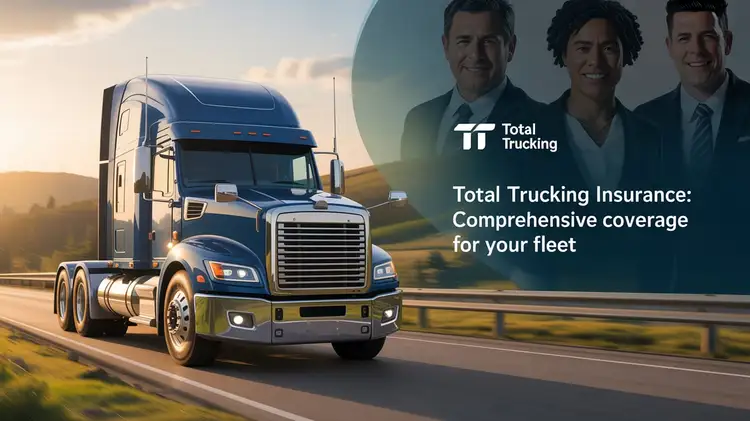
Driver Experience and Record
The skill and history of each driver directly shape your fleet’s insurance bill. Operators who have logged many safe miles and who carry clean records usually attract lower premiums.
What’s Covered
Liability coverage for the driver plus workers compensation for on-the-job injuries.
Why It’s Important
Safer, seasoned drivers pose less uncertainty to insurers, often translating that advantage into reduced overall costs for your trucking policy.
Geographic Location
Where your trucks load, haul and park also colors the price of coverage. Routes that cross high-accident urban zones, regions plagued by theft or areas known for severe weather typically command steeper premiums.
What’s Covered
Risk evaluations tied to the addresses of your terminals, the neighborhoods served and the highways travelled.
Why It’s Important
Because scenery influences loss frequency, insurers price accordingly, meaning carriers based in calmer locales may pay less for essentially the same contract.
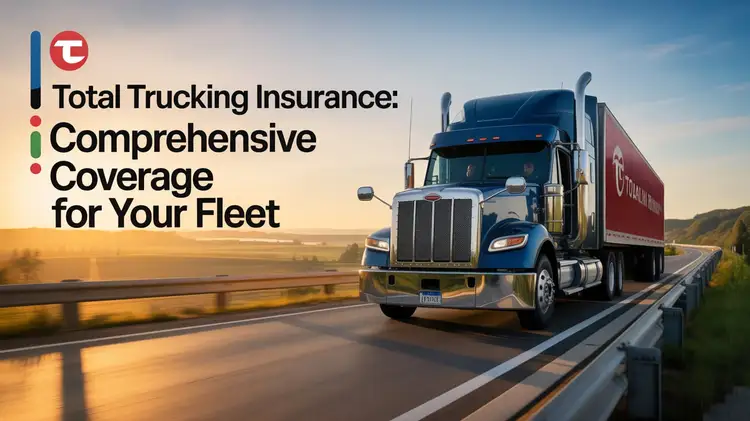
Claims History
A pattern of frequent claims-squeezed out of repairs, cargo losses or equipment damage-can push your rates upward. Insurers view such firms as more exposed and therefore require higher returns to offset anticipated costs.
What’s Covered
A review of past incidents and the multiplier effect they impose on future premiums.
Why It Matters
A documented history of claims indicates greater exposure to loss, prompting insurers to impose steeper premiums on companies that have struggled to manage risk.
How to Pick the Right Total Trucking Insurance
Evaluate Your Business Risks
Begin with a close look at the dangers that surround your trucks and drivers. Reflect on the nature of the cargo-livestock, hazardous material, high-value freight-the roads used and the size and age of the fleet. Clear insight into these elements reveals the depth of coverage you truly need.
Tip:
Carry out a formal risk audit so you can document hazards and prioritize them for action.
Compare Policies and Coverage Options
Coverage can vary widely from one underwriter to the next, even if the premium looks similar. Set aside time to pit prices, limits, deductibles and exclusions against one another. Favor carriers that specialize in trucking, for they have the experience to price and respond to sector-specific exposures correctly.
Tip:
Engage an independent broker who can shop the market on your behalf and outline the strongest value.
Examine Extra Coverage Options
Think about extra protection that might suit your operation. If you work in places that see brutal storms or if you move high-value freight, policies for weather damage or specialty cargo may be a wise line item.

Tip:
Speak with your agent about add-ons or riders that could broaden your plan and shield you more fully.
Scrutinize Policy Exclusions
Before you sign, comb through the exclusions to confirm every major risk is addressed. Raise questions about any remaining holes and weigh a second, smaller policy to plug them.
Tip:
Ensure your enterprise is truly protected so you do not face costly surprises when you file a claim.
FAQs
Fees for complete trucking coverage depend on your fleet size, freight type, base location and desired limits. Many carriers pay between $3,000 and $10,000 a year to protect their vehicles and cargo.
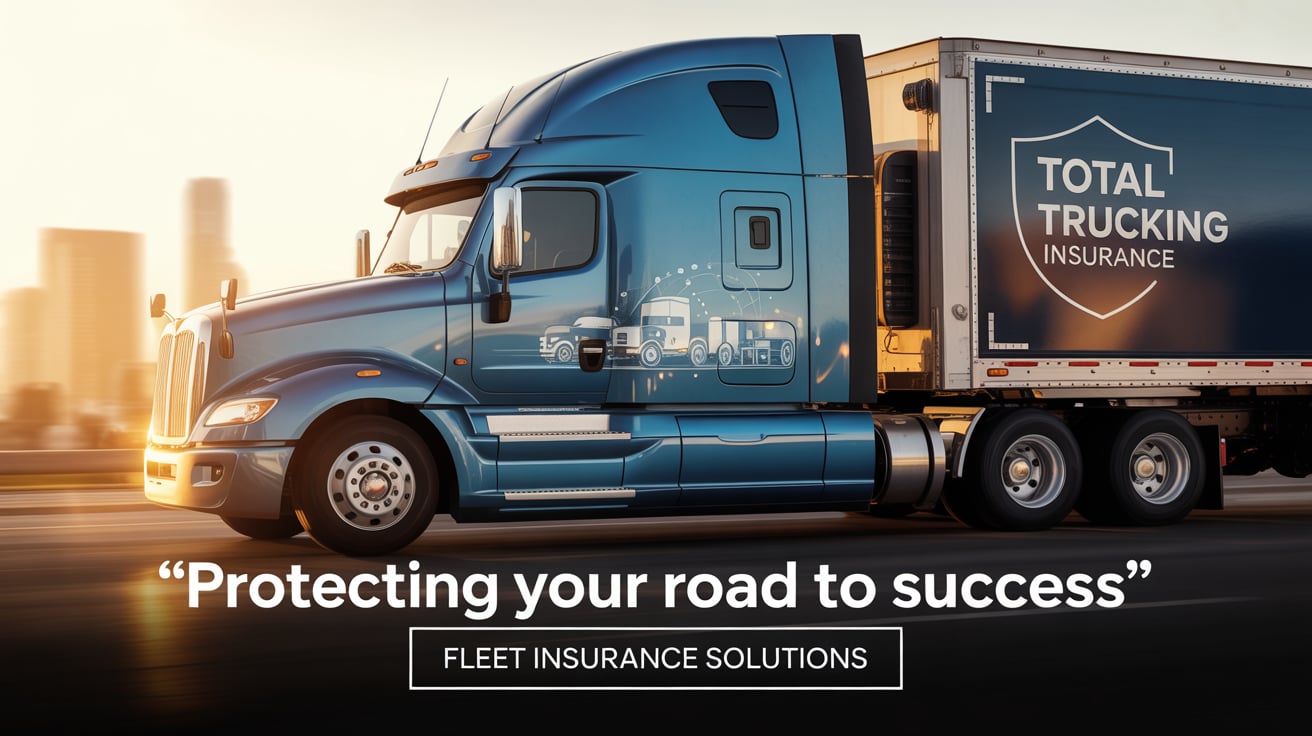
Conclusion
For every trucking enterprise, a full suite of insurance is more than a regulatory box to tick; it is the bedrock that shields the entire operation. Such coverage extends beyond basic liability to wrap each vehicle, driver and load in a financial safety net against theft, damage and unforeseen accidents. When liability limits, property clauses and cargo terms align with the company’s unique exposure, they fortify the balance sheet and foster stakeholder confidence.
Meticulous needs analysis, prudent comparison of competing plans and deliberate choice of scope thus allow an owner to protect the fleet while reining in costs. Armed with dependable coverage, management can shift focus from risk mitigation to the growth and long-term viability of its trucking corridors.

- Be Respectful
- Stay Relevant
- Stay Positive
- True Feedback
- Encourage Discussion
- Avoid Spamming
- No Fake News
- Don't Copy-Paste
- No Personal Attacks

- Be Respectful
- Stay Relevant
- Stay Positive
- True Feedback
- Encourage Discussion
- Avoid Spamming
- No Fake News
- Don't Copy-Paste
- No Personal Attacks


